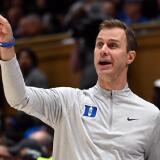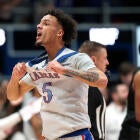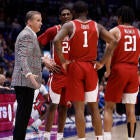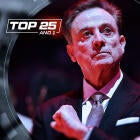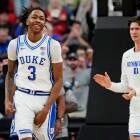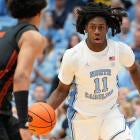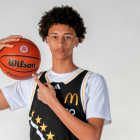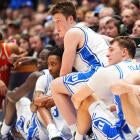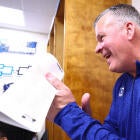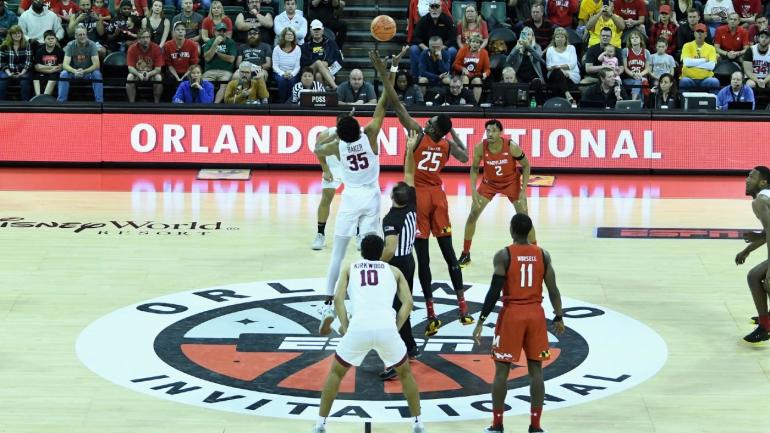
Several early-season college basketball tournaments and multi-team events that were going to be held in Orlando, Florida, next month have been canceled, according to ESPN, which was staging the games. The scuttling of the plans to play the tournaments and events in a "NBA-like bubble" comes after what The Athletic reports were "ongoing differences" between the network and the participating schools over COVID-19 health and safety protocols required for participation, costing dozens of programs games just a month before the season is scheduled to start.
"ESPN Events set out to create a protected environment for teams to participate in early-season events in Orlando," ESPN said in a statement Monday afternoon. "Based on certain challenges surrounding testing protocols, we opted to resume these tournaments during the 2021-22 season."
Calling off plans for the games in the Orlando bubble impacts 10 total events owned by ESPN and more than two dozen teams in total that were expected to participate, according to The Athletic. Among the events impacted include the Jimmy V Classic, Champions Classic and the Orlando Invitational. It's unclear if the Champions Classic and the Jimmy V Classic doubleheaders will be canceled, however, or if the events will be played elsewhere. How those are handled could impact Duke, Michigan State, Kansas and Kentucky, the team's involved in the Champions Classic. The Athletic reported that Virginia, Florida State and Texas Tech were among the "dozens of teams" who had games cancelled less than a month before the 2020-21 season begins on Nov. 25.
Itching for more college hoops analysis? Listen below and subscribe to the Eye on College Basketball podcast where we take you beyond the hardwood with insider information and instant reactions.
The disagreement between schools expected to participate in the Orlando bubble and ESPN came over how stringent the protocols would be, according to CBS Sports' Matt Norlander. The Athletic reported that ESPN put forth guidelines that fall in line with the Centers for Disease Control (CDC) and the NCAA, which are "more restrictive than the protocols many conferences are planning to implement." There was also disagreement on how to handle COVID-19 positive players and how frequently players who recovered from the virus must be tested.
Whether or not some of these events get rescheduled or not, though, the fact that multi-team events -- a month out from the start of the season -- are being canceled or pushed elsewhere is not a good sign. Schools planning to play in the events now canceled must scramble to fill schedules elsewhere on short notice, and there's at least some behind-the-scenes momentum to move to a conference-only schedule for this season amidst last-minute chaos.
![[object Object] Logo](https://sportshub.cbsistatic.com/i/2020/04/22/e9ceb731-8b3f-4c60-98fe-090ab66a2997/screen-shot-2020-04-22-at-11-04-56-am.png)







